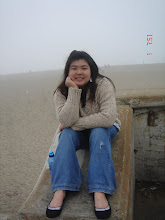 Abraham Lincoln
Abraham LincolnBecause I study at Lincoln University I want to know about Abraham Lincoln history why President of Lincoln University chooses his name to be a name of University.
Abraham Lincoln was born on February 12, 1809, his father is Thomas Lincoln and his mother is Nancy Hanks, two uneducated farmers, in a one-room log cabin on the 348-acre (1.4 km2) Sinking Spring Farm, in southeast Hardin Country, making him the first president born outside the original 13th Colonies. Lincoln's ancestor Samuel Lincoln had arrived in Hingham, Massachusetts in the 17th century, but his descendants had gradually moved west, from Pennsylvania to Virginia and then westward to the frontier.
For some time, Thomas Lincoln, Abraham's father, was a respected and relatively affluent citizen of the Kentucky, which I went there before I move to San Francisco. He had purchased the Sinking Spring Farm in December 1808 for $200 cash and assumption of a debt. The family belonged to a Hardshell Baptist church, although Abraham himself never joined their church, or any other church for that matter.
When Lincoln was nine, his mother, then 34 years old, died of milk sickness. Soon afterwards, his father remarried to Sarah Bush Johnston. Lincoln was affectionate toward his stepmother, whom he would call "Mother" for the rest of his life, but he was distant from his father.
In 1830, after more economic and land-title difficulties in Indiana, the family settled on public land in Macon Country, Illinois. The following winter was desolate and especially brutal, and the family considered moving back to Indiana. The following year, when his father relocated the family to a new homestead in Coles country, Illinois, 22-year-old Lincoln struck out on his own, canoeing down the Sangamon River to the village of New Salem in Sangamon country. Later that year, hired by New Salem businessman Denton Offutt and accompanied by friends, he took goods from New Salem to New Orleans via flatboat on the Sangamon, Illinois and Mississippi rivers.
Lincoln's formal education consisted of about 18 months of schooling, but he was largely self-educated and an avid reader. He was also a talented local wrestler and skilled with an axe. Lincoln avoided hunting and fishing because he did not like killing animals, even for food. At 6 foot 4 inches (1.93 m), he was unusually tall, as well as strong.
Lincoln was chosen as the Republican candidate for the 1860 election for several reasons. His expressed views on slavery were seen as more moderate than those of rivals William H. Seward and Salmon P. Chase. His "Western" origins also appealed to the newer states: other contenders, especially those with more governmental experience, had acquired enemies within the party and were weak in the critical western states, while Lincoln was perceived as a moderate who could win the West. Most Republicans agreed with Lincoln that the North was the aggrieved party as the Slave Power tightened its grasp on the national government. Throughout the 1850s he denied that there would ever be a civil war, and his supporters repeatedly rejected claims that his election would incite secession. On May 9-10, 1860, the Illinois Republican State Convention was held in Decatur. At this convention, Lincoln received his first endorsement to run for the presidency.
Throughout the general election, Lincoln did not campaign or give speeches. This was handled by the state and county Republican organizations, which used the latest techniques to sustain party enthusiasm and thus obtain high turnout. There was little effort to convert non-Republicans, and there was virtually no campaigning in the South except for a few border cities such as St. Louis, Missouri, and Wheeling, Virginia; indeed, the party did not even run a slate in most of the South. In the North, there were thousands of Republican speakers, tons of campaign posters and leaflets, and thousands of newspaper editorials. These focused first on the party platform, and second on Lincoln's life story, making the most of his boyhood poverty, his pioneer background, his native genius, and his rise from obscurity. His nicknames, "Honest Abe" and "the Rail-Splitter," were exploited to the full. The goal was to emphasize the superior power of "free labor," whereby a common farm boy could work his way to the top by his own efforts. On November 6, 1860, Lincoln was elected as the 16th President of the United States.
After, I read this article form internet, he was a great man and I believe that American people had to know them when they studied at high school. I figure out about Lincoln who is amazing guy.

No comments:
Post a Comment